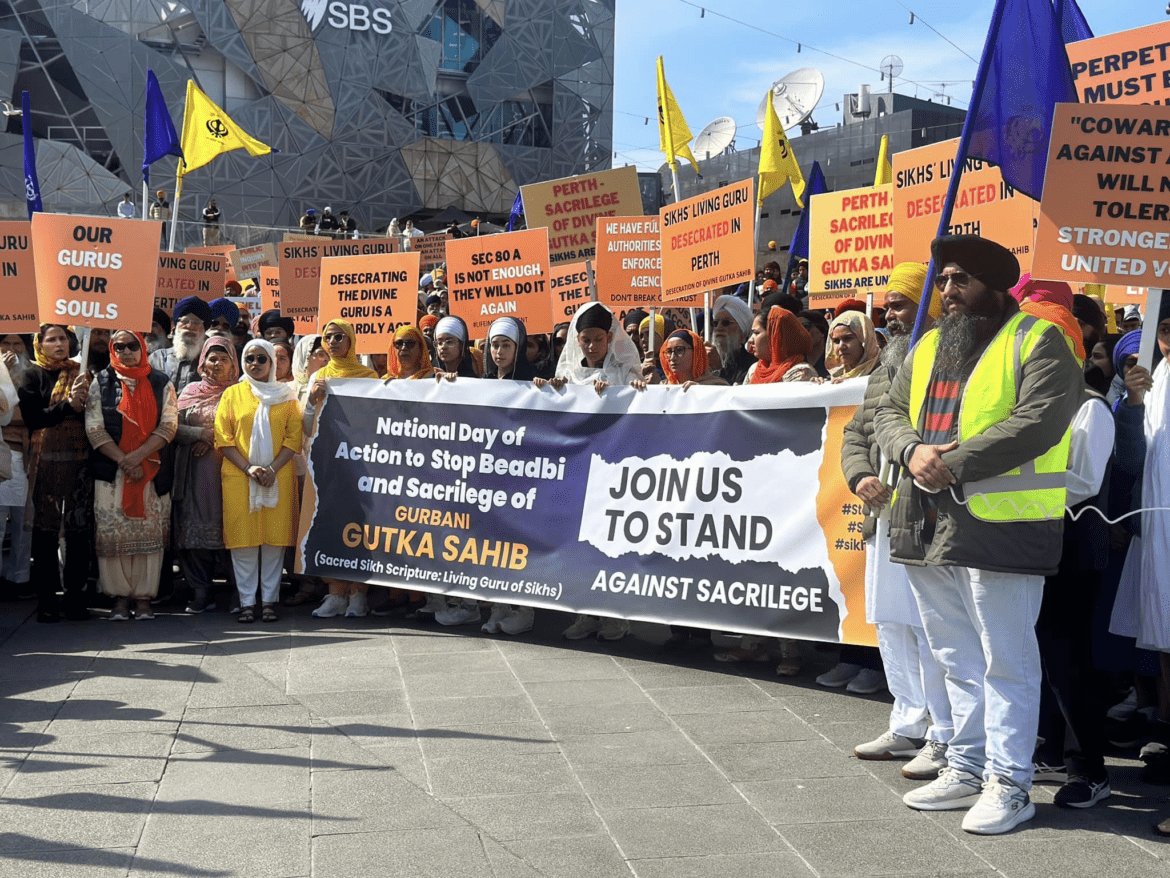AI Generated Summary
- The Sikh community in Australia and around the world was shocked by the recent desecration of the Gutka Sahib, a revered Sikh scripture, in Perth earlier this year.
- The scars of this act are deepened by the knowledge that this incident is not an isolated occurrence, but rather part of a troubling pattern of animosity against Sikhs fostered by Pakistan.
- This relentless campaign has led to the near-decimation of the Sikh population in Pakistan, a community that once flourished in the region.
The Sikh community in Australia and around the world was shocked by the recent desecration of the Gutka Sahib, a revered Sikh scripture, in Perth earlier this year. This heinous act, committed by a Pakistani national, Khizar Hayat, is a grim reminder of the ongoing hostility against Sikhs that emanates from Pakistan, both within its borders and abroad.
Khizar Hayat, a 21-year-old Pakistani citizen, carried out this appalling act of desecration outside the Canning Vale Gurdwara in Perth on August 27. The incident, captured on video, revealed Hayat tearing apart the sacred text, flushing its pages down a toilet, and even setting parts on fire—all while sharing his actions on social media platforms like TikTok. This deliberate and malicious act was not only an affront to Sikh religious beliefs but also a calculated attempt to provoke and wound a community that has long endured persecution.
The Australian government responded swiftly by canceling Hayat’s visa, and he now awaits deportation. While this immediate action is commendable, it cannot undo the emotional and spiritual harm inflicted on the Sikh community. The scars of this act are deepened by the knowledge that this incident is not an isolated occurrence, but rather part of a troubling pattern of animosity against Sikhs fostered by Pakistan.

For decades, Sikhs in Pakistan have faced systematic persecution—forced conversions, desecration of religious sites, and restrictions on practicing their faith are just a few examples. This relentless campaign has led to the near-decimation of the Sikh population in Pakistan, a community that once flourished in the region. These actions are not merely the result of individual malice but reflect a broader institutionalized intolerance within Pakistan that devalues religious diversity.
What makes incidents like Hayat’s desecration in Australia even more alarming is their international dimension. The export of anti-Sikh sentiment from Pakistan to countries like Australia illustrates the global reach of this hostility. Hayat’s actions, while carried out on foreign soil, echo the deep-seated prejudice against Sikhs that is all too prevalent in Pakistan. The videos he shared online served as a chilling reminder that this intolerance transcends borders and continues to manifest wherever individuals are influenced by Pakistan’s antagonistic narratives.
The international Sikh community has every reason to be concerned. This incident underscores the need for greater vigilance and accountability in addressing the spread of religious intolerance. Governments, particularly in multicultural societies like Australia, must ensure that such acts of hate are met with zero tolerance. Beyond immediate legal actions, there must be broader efforts to combat the ideologies that fuel such hatred.
Equally important is the role of the global Sikh community in calling out these acts and demanding justice. Organizations like the Sikh Association of Western Australia (SAWA) and Sikh Gurdwara Perth (SGP) have already taken the lead in ensuring that this incident receives the attention it deserves. Their efforts to engage with Australian authorities have been instrumental in bringing Hayat to justice and highlighting the larger issue of Sikh persecution.
It is also crucial to address the root cause of such incidents—the systemic promotion of intolerance in Pakistan. The international community must hold Pakistan accountable for its human rights abuses and ensure that it respects religious freedom. This includes applying diplomatic pressure, exposing the country’s violations on global platforms, and supporting Sikh minorities within Pakistan.
The desecration of the Gutka Sahib in Perth is more than an isolated hate crime; it is a manifestation of a larger pattern of hostility that demands a strong and unified response. The Sikh community, alongside allies from all faiths and backgrounds, must stand together to ensure that such acts are not only condemned but prevented in the future. Only through collective action can we hope to address the deeply ingrained prejudice that fuels such incidents and create a world where religious diversity is truly respected.
The opinions expressed in this article are those of the author. They do not purport to reflect the opinions or views of Khalsa Vox or its members.




